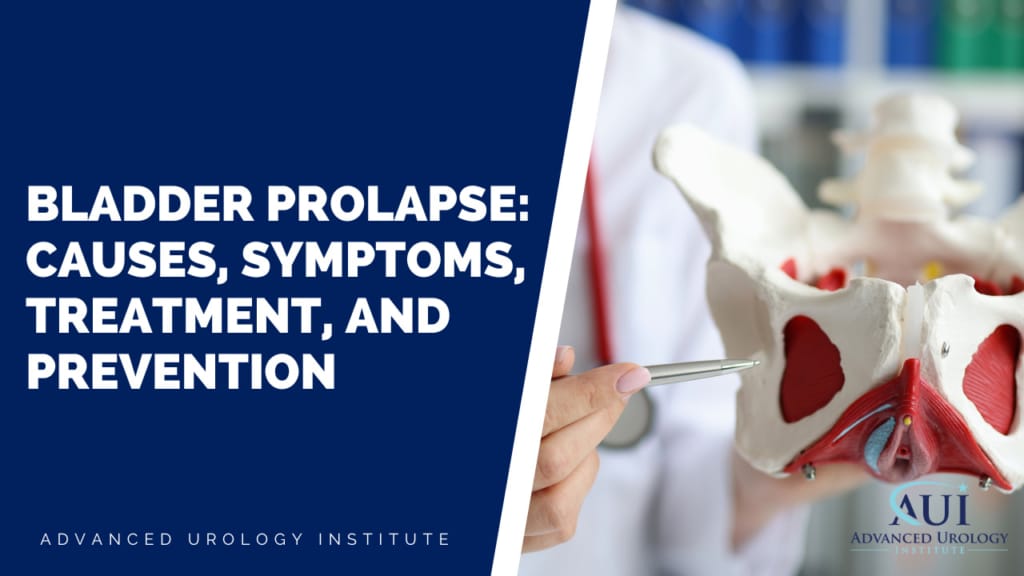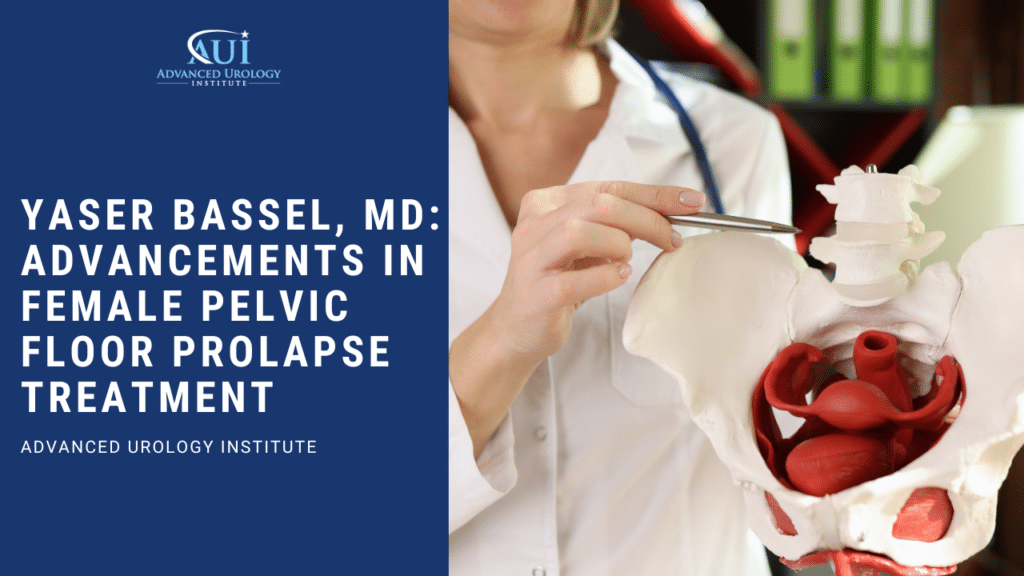CHRONIC PELVIC PAIN
CHRONIC PELVIC PAIN

Do you feel pain in the lower part of your torso, just between your hips? It is not a pleasant feeling, and you can’t get a good sleep or engage in quality exercise. At times, you have to miss work. It’s the kind of pain that comes and goes—sometimes dull and sometimes sharp—but never resolves. Next thing you know, six months have gone by and yet the pain is still there.
You might be experiencing chronic pelvic pain.
For this condition, you will need a female pelvic medicine and reconstructive surgery (FPMRS) physician to help you.
At Advanced Urology Institute, we have FPMRS physicians who can help you at our Fort Myers center.
What is chronic pelvic pain?
Chronic pelvic pain (CPP) is a persistent, non-cyclic pain perceived to exist in the pelvis’s structures. Typically, it occurs in the area below the belly button and between the hips. It becomes a medical condition if the pain lasts for at least six months.
Chronic pelvic pain has multiple causes. It can be a symptom of another disease or just a condition on its own. If the pain is caused by another medical problem, treating that should be enough to eliminate the pain. However, when the cause of chronic pain cannot be identified, the goal of treatment is customarily to reduce the pain and improve the quality of life.
Causes of chronic pelvic pain include:
- Endometriosis
- Musculoskeletal problems
- Ovarian remnant
- Fibroids
- Chronic pelvic inflammatory disease
- Irritable bowel syndrome
- Pelvic congestion syndrome
- Painful bladder syndrome (interstitial cystitis)
- Psychological factors, such as depression, chronic stress, or a history of sexual or physical abuse.
What are the symptoms of chronic pelvic pain?
- Severe and steady pain
- Dull aching
- Cramping or sharp pains
- Pain that comes and goes (intermittent pain)
- Heaviness or pressure deep within your pelvis
- Pain while urinating or having a bowel movement
- Pain during intercourse
- Pain when sitting or standing for long periods
How is it diagnosed?
Many pelvic disorders can cause pelvic pain. Your urogynecologist will conduct a detailed review of your pain and personal health history. Your doctor may also keep a journal of your pain and other symptoms.
Tests or exams commonly ordered by female pelvic medicine and reconstructive surgery (FPMRS) physicians to diagnose the condition will include: pelvic exam to evaluate the pelvic area, ultrasound to detect cysts or masses in the uterus, fallopian tubes or ovaries, and laparoscopy to detect chronic pelvic inflammatory disease and endometriosis.
Your urogynecologist may also order the following: blood work to check cell count, a urinalysis, lab tests to check for infections like gonorrhea or Chlamydia, and imaging tests such as abdominal X-rays, magnetic resonance imaging (MRI), or computerized tomography (CT) to help detect abnormal growths or structures.
What are the treatment options?
The goal of treating chronic pelvic pain is to reduce symptoms, improve overall function, and boost quality of life. Since the cause and consequence of the pain may involve multiple mechanisms, urogynecologists apply a holistic treatment approach that addresses the physical, behavioral, psychological, and sexual components.
At Advanced Urology Institute, we are proud to have advanced diagnostic technology and the expertise to pinpoint the cause of your chronic pelvic pain. Once we identify the underlying cause, we ensure the treatment will address it. In cases where the cause is not clearly defined, the treatment typically manages the pain and other symptoms.
Depending on the cause, your urogynecologist may recommend pain-relieving medications, hormone treatment, antibiotics, or antidepressants. Your doctor may also recommend physical therapy, neuro-stimulation, trigger point injections, or psychotherapy.
When there is a need to correct an underlying problem responsible for the pain, a surgical procedure, such as laparoscopic surgery or hysterectomy, may be recommended. In many cases, however, the optimal treatment approach involves a combination of treatments.
PHYSICIANS WHO SPECIALIZE IN
CHRONIC PELVIC PAIN




STAY IN THE KNOW












